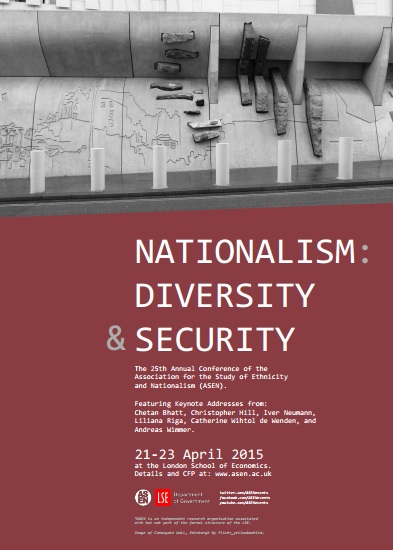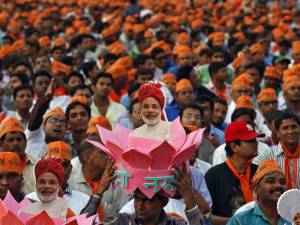Call for Papers: “Orientalism, Colonial Thinking and the Former Soviet Periphery: Exploring Bias and Stereotype Representations of Eastern and Central Europe, the Caucasus, and Central Asia”
Vilnius University, August 27-29, 2015
The Ukrainian crisis has placed the entire post-communist world back at the very centre of global debates in the media, politics and academia. Concepts such as sovereignty of post-Soviet and post-communist states have been brought into question once again, alongside the historical development, international alignment and aspirations of state actors in the region.
In this context, a narrative of “Russian interests versus Western interests/values” seems to have gained currency in Western media and political discourses. Smaller actors of Eastern and Central Europe, Central Asia, the Baltics and the Caucasus see their perspectives ignored or put on a secondary level. This has led some scholars to suggest the existence among Western and Russian commentators of a “colonial”, “Orientalist” bias that favours the former imperial “centre” and sees formerly subaltern actors as passive entities in a greater game, giving a stereotypical and demeaning image of such countries and their people. This in turn leaves countries of the former Czarist and Soviet peripheries unable to influence the mainstream debate and to present a self-centred approach in a world in which perceptions and narratives more and more legitimize actions in international relations.
The purpose of the conference is to provide an academic framework for the discussion of these ideas and put them to the test of peer debate. The goal is to discuss the relevance of Post-Colonial Studies to Post-Communist Studies and hopefully open an innovative chapter in the academic understanding of the Post-Communist World.
Keynote speakers: Dr. Andreas Umland, Kyiv-Mohyla Academy; Prof. Alexander J. Motyl, Rutgers University; Mykola Ryabchuk, Ukrainian Centre for Cultural Studies; Dr. John Heathershaw, Exeter University; Dr. Nick Megoran, Newcastle University
Individual abstract proposals should be submitted by March 25th.
Panel proposals (inclusive of abstracts) should be submitted by April 10th.
Proposals are to be submitted via email to: fabio.belafatti@oc.vu.lt in .pdf or .doc format using the subject line “Paper/panel proposal – Orientalism 2015”
Please click here for more information on the conference.
Call for Contributions: Ethnopolitics Papers
Ethnopolitics Papers offers an opportunity for established scholars as well as early career researchers and practitioners to shape and contribute to contemporary debates in the broad field of politics and ethnicity.
Editors are looking for short commentary pieces of around 4-5,000 words and longer articles between 7-10,000 words in length. We have published on a wide variety of topics and are eager to continue doing so.Your article will be subject to a peer-review process which we will endeavour to complete as efficiently as possible to ensure rapid publication of your contribution.
Please contact the editors, Dr Gareth Curless (G.M.Curless@exeter.ac.uk) and Morgane Colleau (mc301@exeter.ac.uk).
Call for Papers: “In Search of New Perspectives, Methods and Finer Factors of Identity Formation –From East Asia to the World”
Taiwan Studies Programme Annual Conference
4 and 5 September 2015, St Antony’s College, University of Oxford, UK
Deadline of abstract submission: Friday, 10th April
Notification of acceptance: Friday, 31st May
Deadline of Registration: Friday, 7th August
Conference Objective
Multiple, mercurial, flowing, strategic, transcultural and transnational, context-dependent and socially constructed—these are characteristics of contemporary identity observed by postmodernist theorists. Yet, a chronic debate is that these attributes can neither entirely fit into individuals’ perception of self-identity, nor thoroughly correspond with their sense of subjectivity when individuals take political actions or fulfill their particular roles in identity politics. More precisely, when the significant influence of social contexts—i.e., perceived history, social structure, the operation of state apparatus, etc., which mainly contribute the postmodernist characteristics of identity—has been widely recognised, how should we explain the heterogeneity of identity emerging in similar contexts? How should we account for the diversity of political action taken by individuals who are supposed to share the same identity?
East Asia can be a good starting point to deal with this analytic dilemma. It is often perceived and presented as a rather simple region—in comparison with others like Southeast Asia and Europe—consisting of four major peoples (arguably, Japanese, Korean, Taiwanese and Chinese) with both intensive and long histories of mutual cultural exchange. However, the composition of ethnicity, language, culture and custom is far more diverse than this simplified, quadruple categorisation. The internal heterogeneity of a region not only consumes great energy of states or other social institutions which attempt to create a certain common collectiveness, but also presents a valuable field for researchers to further look into the struggle in one’s identity formation, and to explore various factors behind it. Taking national identity as an example (yet, the scope of this conference is not limited to this type of identity; we welcome researchers who focus on the way in which individuals locate themselves and their identity in their economic and social lives and so forth, especially from the geopolitical perspective), as China is increasingly cultivating a strong nation-image both domestically and internationally, it is also creating a homogeneous cultural and national identity—that is, to be culturally ‘Chinese’ is to recognise the communist regime. Meanwhile, the exclusive Taiwanese and Hong Kong identities, in spite of the two governments’ pro-China and pro-neoliberal tendencies, have increased to a historic high, arguably catalysed by large- scale student movements during the last year which aimed to pursue values of democracy and social equality. Apparently, unconventional factors other than, for instance, the recognition of one’s nation and ethnicity and the state’s effort and measure of nation building, forge and shape people’s national identity of these cases.
Conference Themes
This conference calls for papers that share the common goal of exploring new constitutive factors and developing new perspectives of identity research. Several themes are designed (but not limited to) as follows: Theorising and Measuring Identity; State and Identity; Society and Identity; Individual and Identity
This is only a preliminary design which attempts to offer broad guidance in our journey of studying identity. We are indeed excited to see research, not only using various research materials—either individual ones like autobiography, diary, novel, music/art work, online comments/articles, or general ones like newspaper, textbooks, advertisements, state propaganda, etc.—but also covering diverse types of identity, such as national, ethnic, political, class or gender identity, or identities based on the classification of social roles or virtually created in the Internet.
Rules of Submission
The submission deadline is Friday, 10th April. The abstract (up to 300 words) is expected to succinctly include research objectives, theoretical frameworks, research methods, summary of research findings and main arguments, and intellectual contributions or social and political implications. Please also list three to five keywords and attach a short biography of the author. All abstract should be emailed to: asian@sant.ox.ac.uk with the subject heading ‘TSP 2015 abs’, which ensures the submission will not go to spam folder.
Funding for travel and accommodation may be available to authors whose papers are selected. The full papers with a maximum length of 8,000 words must be submitted by 20 August 2015. A selection of accepted papers will be considered for publication in either an edited volume or a peer-reviewed journal special issue.
Enquiries: asian@sant.ox.ac.uk or tel: (+44) 01865-274559
Please see the official Facebook page for updates (e.g. latest news and invited speakers) https://www.facebook.com/events/785890181504077/





